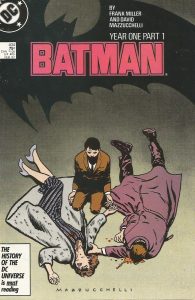
Batman, a character shrouded in mystery and darkness, has fascinated comic book fans for decades. Beyond his cape and cowl, Batman/Bruce Wayne is a complex character whose psychology is as intriguing as his gadgets. This article delves into the mind of the Dark Knight, exploring what makes him tick and how his unique psychology shapes his actions.
The Dual Identity of Bruce Wayne and Batman
– The Mask of Normalcy: Bruce Wayne, the billionaire playboy, is often perceived as a mask that hides Batman’s true identity. This persona allows him to operate in society and keep his vigilante activities separate.
– Batman as the True Self: For many fans and psychologists, Batman is considered the ‘real’ personality, with Bruce Wayne being the façade. Batman’s quest for justice is a more authentic expression of his inner self.
Trauma and Motivation
– The Impact of Childhood Trauma: The murder of Bruce Wayne’s parents is a pivotal event that shapes his life. This trauma fuels his crusade against crime.
– A Quest for Control: Batman’s mission can be seen as an attempt to regain control in a world where he felt powerless as a child.
Batman’s Moral Code
– No Killing Rule: One of Batman’s most defining characteristics is his refusal to kill. This moral code sets him apart from many other characters in the comic book world.
– Justice vs. Revenge: Batman walks a fine line between seeking justice and revenge. His moral compass, though sometimes ambiguous, generally guides him towards justice.
The Psychology of Batman’s Relationships
– Allies in the Bat-Family: Characters like Robin, Batgirl, and Alfred are not just sidekicks and assistants; they represent Batman’s need for connection and his unacknowledged desire for a family.
– Complex Relationships with Villains: Batman’s interactions with villains like the Joker and Two-Face reflect his own inner conflicts and the duality of his nature.
Batman’s Mental Health
– Coping Mechanisms: Batman’s nightly crusade is a way of coping with his trauma. However, it’s debated whether this is a healthy form of coping or an obsession.
– The Risk of Obsession: Batman’s dedication to his cause borders on obsession, raising questions about his mental health and whether his actions are ultimately beneficial or destructive.
Conclusion:
Batman, a character rich in complexity, offers more than just thrilling adventures. His psychology provides a window into the human experience of coping with trauma, navigating dual identities, and adhering to a moral code. The Dark Knight’s enduring appeal lies not just in his physical prowess or detective skills, but in his profoundly human psychological journey.
FAQs:
1. Why is Batman considered more psychologically complex than other superheroes?
Batman’s lack of superpowers and reliance on his mental and physical prowess make his character more grounded in human psychology.
2. How does Batman’s moral code shape his character?
Batman’s strict no-killing rule and his pursuit of justice over revenge are central to his character, influencing his decisions and relationships.
3. Is Batman’s way of dealing with trauma healthy?
While Batman’s crusade is a form of coping, it’s a subject of debate among fans and psychologists. Some view it as an obsessive behavior that prevents him from healing, while others see it as a constructive way to channel his trauma.
4. How do Batman’s relationships with his villains reflect his own psychology?
Batman’s interactions with villains often mirror his internal struggles, particularly his battles with characters like the Joker, who represents chaos and the darker aspects of Batman’s own psyche.
5. Can Batman’s character be seen as a study in duality?
Absolutely. The duality of Bruce Wayne/Batman, his moral dilemmas, and his relationships all contribute to a theme of duality that is central to his character.
6. Does Batman’s character evolve over time in the comics?
Yes, Batman’s character has evolved significantly since his creation, reflecting changes in society, the genre, and psychological understanding.
7. How does Batman’s relationship with his allies affect his character?
Batman’s allies often humanize him, providing emotional support and helping him maintain his moral compass. They also represent his unspoken need for family and connection.
Examples of Batman’s Psychological Complexity:
1. Batman’s Origin Story: The trauma of witnessing his parents’ murder as a child is a foundational aspect of his psychological makeup.
2. The No Killing Rule: This moral stance is a significant part of his psychological identity, shaping many of his actions and decisions.
3. His Relationship with the Joker: The Joker often acts as a dark mirror to Batman, highlighting the fine line Batman walks between sanity and madness.
4. The Role of Alfred Pennyworth: Alfred is not just a butler but a father figure, offering emotional support and guidance, crucial for Batman’s mental well-being.
5. Batman and Robin (Dick Grayson): Batman’s adoption of Dick Grayson reflects his need for family and his attempt to prevent Dick from experiencing the same loneliness and trauma he did.
6. The Use of Fear: Batman’s use of fear against criminals reflects his understanding and manipulation of psychology for crime-fighting.
7. His Intellectual Pursuits: Batman’s detective work and intellectual challenges show his use of intellect as a coping mechanism and a way to exert control over chaos.
8. Batman’s Isolation: Despite his allies, Batman often chooses solitude, reflecting his struggle with trust and intimacy due to his trauma.
9. The Batcave as a Sanctuary: The Batcave is not just a headquarters but a sanctuary, symbolizing Batman’s isolation and his separation from the outside world.
10. Batman’s Relationship with Catwoman: His complex relationship with Catwoman showcases his struggle between his moral code and his human desires, further adding to his psychological depth.
In exploring the psychology of Batman, we uncover a character that is much more than a superhero; he is a symbol of the human struggle with trauma, identity, and morality. Batman’s enduring appeal lies in this complexity, making him a character that not only entertains but also resonates on a deeply human level.

